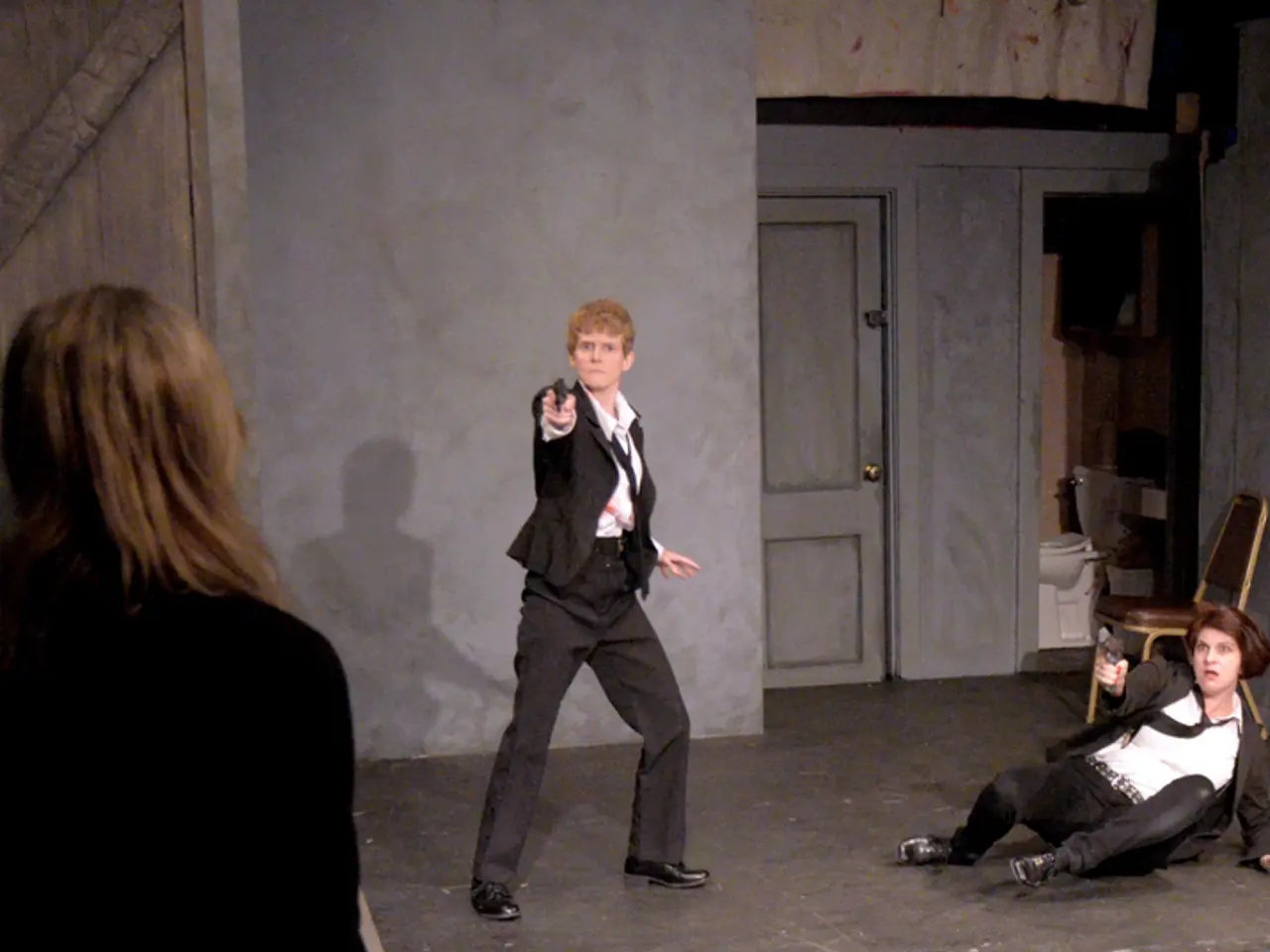Restaurant staff allegedly requires Minnesota teenager to validate her gender for bathroom access.
In the United States, the issue of bathroom access for transgender individuals has become a contentious topic, with various states implementing laws that restrict access based on biological sex. As of mid-2025, 19 U.S. states have such laws or pending legislation, often referred to as "bathroom bills."
These laws vary significantly by state. For instance, New Hampshire's legislation, currently pending in the Senate, would restrict bathroom and locker room use by biological sex in public places, including schools. Tennessee mandates multi-occupancy restrooms and other facilities be designated by sex assigned at birth, applying to all public buildings. Texas' Texas Women’s Privacy Act prohibits transgender individuals from using multi-occupancy restrooms that do not align with their biological sex in government buildings, including schools.
In contrast, Utah's approach, as outlined in HB 257, restricts student access in public schools to restrooms and locker rooms consistent with their biological sex. However, it allows for negotiations between students and parents for single-occupancy restrooms or private accommodations. Students with medical documentation consistent with their gender identity may also use corresponding restrooms.
The issue of bathroom access extends beyond K-12 schools. In some states like Idaho, laws prohibit transgender people from using restrooms matching their gender identity at public colleges and universities. Boise State University is currently challenging Idaho’s HB 264 in court, arguing that inclusive restroom policies have operated safely for years without incidents.
Enforcement and legal challenges are common. Many of these laws include provisions allowing any person to sue if they encounter a transgender person using a disallowed facility. Litigation is ongoing to block or reverse such bans, citing constitutional and discrimination concerns.
The impact of these laws is significant. Over 25% of U.S. transgender individuals live in states with bathroom bans, affecting access not only in schools but also colleges, government buildings, and correctional facilities.
A recent incident in Minnesota highlights the challenges faced by transgender individuals. A teenager named Gerika Mudra filed a charge of discrimination against a Buffalo Wild Wings restaurant in Owatonna. While dining with a friend in April, Mudra was confronted in the women's restroom by a server who demanded she "prove" she was a girl. Mudra, who is biracial and a lesbian, felt uncomfortable and unzipped her hoodie to show she has breasts, but the server did not respond.
Mudra's experience reflects a broader climate of fear and suspicion aimed at anyone who doesn't conform to narrow expectations of what girls and women 'should' look like. Sara Jane Baldwin, senior staff attorney at Gender Justice, stated that businesses have a legal obligation to train staff and ensure antidiscrimination policies are followed in real time.
Minnesota is one of 21 states and Washington, D.C., that explicitly prohibit discrimination based on sexual orientation and gender identity in public accommodations. The charge was filed by Gender Justice, a Minnesota gender-equality organization.
The legal landscape is actively evolving through legislation and court cases. Inspire Brands, which represents Buffalo Wild Wings, did not immediately respond to a request for comment.
- In discussions of lifestyle, the topic of bathroom access for transgender individuals has sparked debate.
- Fashion-and-beauty enthusiasts are also concerned about transgender rights in public places.
- Food-and-drink establishments may face challenges in ensuring equal access for all customers.
- In the home-and-garden sector, understanding the implications of bathroom bills is crucial for homeowners.
- The subject of relationships can encompass the impact of transgender bathroom laws on social dynamics.
- Pet owners might be interested in how these laws affect pet stores or pet-friendly public spaces.
- Travelers planning a trip to the United States should familiarize themselves with the varying state laws.
- Car owners might wonder about the accessibility of public restrooms for transgender individuals while on long drives.
- Bookworms could delve into literature exploring the social implications of bathroom bills.
- Education-and-self-development platforms might offer courses on understanding transgender rights and issues.
- Personal-growth advocates could embrace the opportunity to learn about the challenges faced by the transgender community.
- A blackjack enthusiast may find it essential to stay informed about the legal landscape, given the prevalence of casinos.
- Big-wins in casino-and-gambling could be impacted by the measures taken to enforce bathroom laws.
- Shopping malls and retail stores could experience controversy regarding bathroom access policies.
- Social-media platforms have been used to discuss and raise awareness about the bathroom bill issue.
- Movies-and-TV shows that address discrimination and civil rights issues could include the topic of bathroom bills.
- Career-development resources might focus on the implications of transgender rights in the workplace.
- Casinos in Las Vegas must navigate the complexities of bathroom access to serve their diverse clientele.
- Understanding the history of Vegas and its relationship to gambling trends is important in this context.
- The myths and stereotypes surrounding Las Vegas' gambling culture may influence perceptions of transgender rights.
- Keeping track of gambling trends can help predict the future direction of bathroom bill policy.
- Casino personalities and celebrities have the platform to voice their opinions on transgender rights and bathroom access.
- Entertainment news outlets can cover the legal battles and debates surrounding bathroom bills in the entertainment industry.
- High-profile celebrities using their influence to support transgender rights could shape public opinion.
- Job-search sites might offer resources to find employment in companies advocating for transgender rights.
- Poker players might be interested in the legal implications of bathroom bills for high-stakes tournaments.
- Roulette, another popular casino game, could potentially face challenges due to evolving bathroom access laws.




